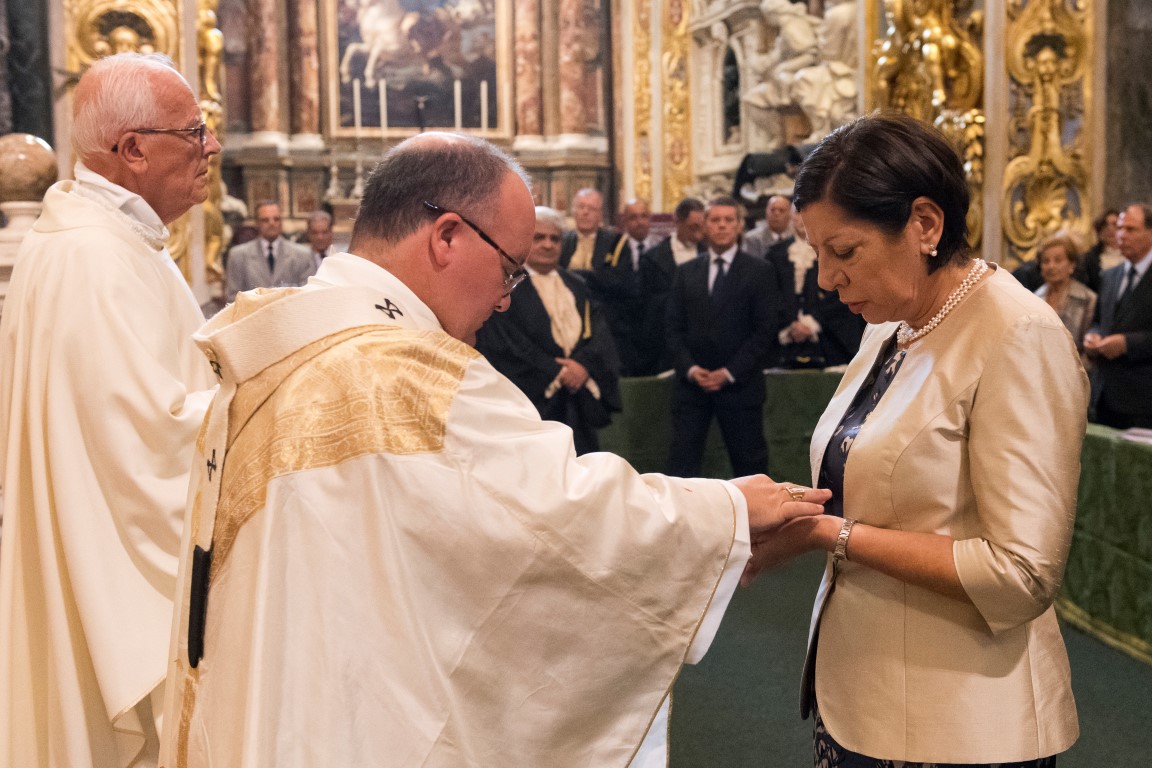-

-
On Wednesday 21st September 2016, Archbishop Charles J. Scicluna celebrated Mass on Independence Day, at St John’s Co-Cathedral, Valletta.
The Celebration of Mass on YouTube
-
Homily by Archbishop Charles J. Scicluna
-

-
The Basic Aspirations of Humanity as a Criterion for Good Governance
St John’s Co-Cathedral, Valletta
21st September 2016
Philosophy has, since ancient times, tried to find a way of defining and expressing the fundamental aspirations of the human heart. The classical list of the values to which humanity aspires in its search for meaning beyond daily reality – the list of the transcendentals – includes the one (unum); the good (bonum); the true (verum) and the beautiful (pulchrum). I would like to share with you a few reflections inspired by these four transcendentals.
The point I would like to make is the following: In 1964 Malta became an independent state with a rightful place in the society of nations. The Independence Constitution adopts its list of fundamental principles and its list of fundamental human rights and aspirations. But the people of Malta, organized as a State, will foster and promote their common good to the extent that they share in the transcendental aspirations of the human family in the everyday workings of the authority, the powers, the governance of the state. In other words, I am proposing the four transcendental values I mentioned – unity, goodness, truthfulness, and beauty – as a criterion for governance, that governance worthy of the human family towards which politics should, and hopefully does, aspire.
Let us start with “unity” which derives from the “one” (unum). State government should first and foremost be based on the quest for national unity. Policies that are divisive, that are based on the privilege of the few or that blatantly promote loyalty to a political party rather than to the State, are a travesty and a mortal poison to the common good of society. Every citizen has the right to belong to the commonwealth of the State and to benefit from the services of government irrespective of who he or she is, under the rule of law as an expression of the common good. In other words, the fight against unjust discrimination is a fight for national unity.
The second transcendental value is “goodness” as an expression of the “good” (bonum). Now the moral life is summed up in the basic dictum: seek the good and avoid evil. Human reason will teach us that this is the basis of authentic human living. Political systems which purport to shy away from the moral demands of human existence, more often than not end up becoming monstrous caricatures of State government. When the common good is sacrificed to the selfish interests of the few, to a Pseudo-ethos based on the relentless quest for material gain at all costs, then we can say the State is sick. The words of the Apostle Paul ring so true: radix omnium malorum cupiditas: greed is the root of all evils (1 Tim 6:10). The State will do well to check the greed of the few that only thrives to the detriment of the many.
The third transcendental value is “truthfulness” as a participation in the truth (verum). Now it is not difficult to connect truthfulness to the other values of fairness, right judgement, and justice. There is a primordial instinct in each and every one of us that teaches us that these human attitudes are in turn based on the truth: they are true to the facts. Governance based on spin, on obscure dealings, and on a constant reticence to allow public scrutiny, irrespective of the myriad laws and the solemn promises, is definitely not good governance. Government based on the Orwellian disregard of the truth will one day implode. Whereas Transparency and Accountability are the values that will make us Maltese truly and rightly proud of our Government.
The fourth and final transcendental value is “beauty” as an expression of the “beautiful” (pulchrum). I do not know to what extent political science has studied the correlation between good governance and beauty. I am not referring to whether a politician should be a handsome guy or a stunning lady or not: although many say that it helps! Rather, my take on the subject may be summed up in the phrase: sapientia cordis – the wisdom of the heart. This concept combines an element of truth (wisdom) and an element of goodness (the heart): Truth and Goodness that lead to the wisdom of the heart. I am convinced that a citizen, educated, formed and trained in truth and goodness, will through time develop that wisdom of heart that promotes and safeguards beauty in the arts, in architecture, in the environment. And I would put this question to myself and to you today: is not the uglification of our natural and historical heritage a symptom of a lack of this wisdom of the heart? A Government that continues to restore and protect our heritage, that will energetically defend the pristine cleanliness of our seas, that will only allow sustainable development: that is a Government that takes beauty to heart, that expresses the nation’s wisdom of the heart.
This expression reminds me of the prayer in our National Anthem: “Grant, O Great God, wisdom to those who govern her”! Amen.
✠ Charles J. Scicluna
Archbishop of Malta
-
-
Photos: Curia Communications Office

























